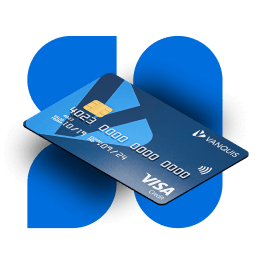One way to improve your credit score is to reduce your debt, which is always a good idea anyway. Here, we’ll look at how to increase credit score and improve credit rating by paying off debt, leaving you in a stronger financial position in more ways than one.
How debt affects your credit score
The size of your debt has a big impact on your credit score so it’s crucial to manage it carefully and, ideally, pay it off. In fact, around 30% of your credit score is calculated depending on the amount of debt you have. For example, credit agencies will look at the ratio between your credit limit and your borrowing.
If your level of borrowing or debt is too close to the limit set by your lender, this will count against you and bring your credit score down. In other words, it’s really important to keep your credit card balance low. Try not to reach your spending limit - or ‘max out’ - your cards, if you can avoid it. Using bankruptcy as a way of tackling your debt will also bring your credit score down, and could negatively affect it for months, or even years.
The flip side is that you can use careful debt management to improve your credit score. If you’re looking for the best way to improve credit score, paying off your debt completely should definitely be high on your priority list.
Paying your balance quickly is another good way to help improve credit rating. So long as you manage them carefully, having more than one type of credit or debt can also boost your credit score. So, if you have a loan, a credit card and a mortgage, and you can handle them all responsibly, that can help to improve your credit score.
Paying off debts to improve your credit score
If you’re wondering how to improve credit score fast, first you need to understand that there are two different types of debt.
Revolving accounts
These include credit cards or personal lines of credit, and they’re called revolving because you can borrow against their credit limit again and again.
Instalment accounts
Instalment accounts usually come with a fixed timetable for repayment and a set amount for the loan itself. Debts like this include mortgages, student loans, personal loans or car finance.
Ways to pay off debt to improve your credit score
Paying off your debt is definitely one solution if you’re asking yourself “how can I improve my credit score?” Let’s look at a few of the ways to try and achieve this.
Increase repayments
If you can afford to, it’s a good idea to pay the full balance each month, or as much of it as you can. This is better than just paying off the minimum amount on your credit card each month. With personal loans, it might be possible to negotiate higher repayments with your lender depending on the terms of your specific loan
Make payments more often
Another method to consider is upping your repayments from monthly to fortnightly. Even if you reduce the amount you pay off each time, you could still calculate a repayment figure that clears your total debt sooner if you repay more often. For loans, consider setting up a monthly standing order in addition to your regular payments. Even a small increase in the amount you repay each month will make a significant difference over a full year.
Make overpayments
If you get a windfall like a gift, refund or salary bonus, you could use it to overpay on your debts and clear them sooner. Check your product’s terms and conditions first though to make sure there’s no fee or penalty for this.
All of the above!
That’s right, you can try different combinations of the above methods, including trying all three. Just make sure you do some simple calculations to work out what you can safely afford, then speak to your lenders to get their advice and permission.
Ultimately, when it comes to paying off debt, think hard about your outgoings, plan ahead, and choose your products, lenders and strategy carefully. If you can manage your debt responsibly and shrink it over time, your credit score will naturally benefit too. You’ll be the one to reap the rewards.
